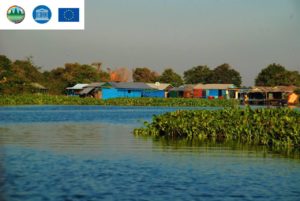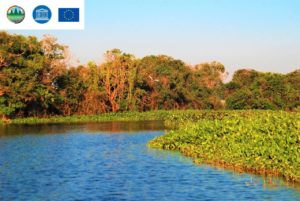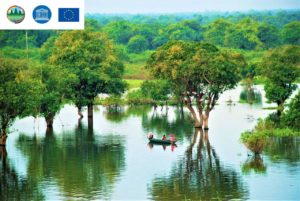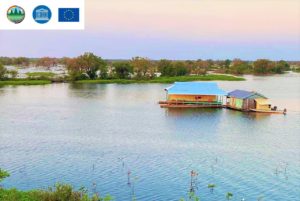бһ”бҹ’бһҡбһҮбһ¶бһҮбһ“бһҮбһ¶бһ„ бҹЈ.бҹҰбһӣбһ¶бһ“бһ“бһ¶бһҖбҹӢ бһ”бһ¶бһ“бһ“бһ·бһ„бһҖбҹҶбһ–бһ»бһ„бһ–бһ№бһ„бһ•бҹ’бһўбҹӮбһҖбһҠбҹ„бһҷбһ•бҹ’бһ‘бһ¶бһӣбҹӢ бһ¬бһҠбҹ„бһҷбһ”бҹ’бһҡбһҷбҹ„бһӣбһӣбһҫбһ’бһ“бһ’бһ¶бһ“бһ’бһҳбҹ’бһҳбһҮбһ¶бһҸбһ· бһ“бҹғбһӢбһ”бһ“бһёбһҷбһҮбһёбһңбһҳбһҺбҹ’бһҢбһӣбһ”бһ№бһ„бһ‘бһ“бҹ’бһӣбҹҒбһҹбһ¶бһ”бҹ” бһҸбҹҶбһ”бһ“бҹӢбһ“бҹҒбҹҮвҖӢбһҮбһ¶вҖӢбһҸбҹҶбһ”бһ“бҹӢбһҳбһҪбһҷбһҠбҹӮбһӣбһҳбһ¶бһ“бһҮбһёбһңбҹҲбһ…бһҳбҹ’бһҡбһ»бҹҮбһҷбҹүбһ¶бһ„бһҹбһҳбҹ’бһ”бһјбһҡбһ”бҹӮбһ”вҖӢбһ“бҹ… бһҖбҹ’бһ“бһ»бһ„бһҸбҹҶбһ”бһ“бҹӢ бһҖбҹҸбһҠбһјбһ…бһҮбһ¶бһ“бҹ…бһҖбҹ’бһ“бһ»бһ„вҖӢбһ–бһ·бһ—бһ–бһӣбҹ„бһҖ бһҠбҹӮбһӣбһ”бһ¶бһ“вҖӢбһ•бҹ’бһҸбһӣбҹӢбһҮбһ¶вҖӢбһ‘бһёбһҮбһҳбҹ’бһҡбһҖвҖӢбһҠбһӣбҹӢвҖӢбһҡбһ»бһҖбҹ’бһҒбһҮбһ¶бһҸбһ· бһ“бһ·бһ„вҖӢбһҹбһҸбҹ’бһңвҖӢбһҮбһ¶бһ„ бҹЁбҹ бҹ бһ”бҹ’бһҡбһ—бҹҒбһ‘бҹ”
бһ”бһ№бһ„бһ‘бһ“бҹ’бһӣбҹҒбһҹбһ¶бһ” бһӮбҹ’бһҡбһ”бһҠбһҺбҹ’бһҸбһ”бҹӢбһӣбһҫбһ•бҹ’бһ‘бҹғбһҠбһёбһ‘бҹҶбһ бҹҶбһҮбһ¶бһ„ бҹЎ.бҹӨбһӣбһ¶бһ“бһ бһ·бһҖбһҸбһ¶ бһҸбҹ’бһҡбһјбһңбһ”бһ¶бһ“бһ‘бһ‘бһҪбһӣбһҹбҹ’бһӮбһ¶бһӣбҹӢбһҮбһ¶бһӢбһ”бһ“бһёбһҷбһҮбһёбһңбһҳбһҺбҹ’бһҢбһӣбһҡбһ”бһҹбҹӢбһўбһ„бҹ’бһӮбһҖбһ¶бһҡбһҷбһјбһҺбҹҒбһҹбҹ’бһҖбһјбһҖбҹ’бһ“бһ»бһ„бһҶбҹ’бһ“бһ¶бҹҶ бҹЎбҹ©бҹ©бҹ§ бһҠбҹӮбһӣбһҮбһ¶бһ•бҹ’бһ“бҹӮбһҖбһҳбһҪбһҷ бһ“бҹғбһҖбһҳбҹ’бһҳбһңбһ·бһ’бһёбһҳбһ“бһ»бһҹбҹ’бһҹ бһ“бһ·бһ„бһҮбһёбһңбһҳбһҺбҹ’бһҢбһӣ бһҡбһ”бһҹбҹӢбһўбһ„бҹ’бһӮбһҖбһ¶бһҡбһҷбһјбһҺбҹҒбһҹбҹ’бһҖбһјбҹ” бһ…бһ¶бһ”бҹӢбһ•бҹ’бһҸбһҫбһҳбһҖбҹ’бһ“бһ»бһ„бһҶбҹ’бһ“бһ¶бҹҶбҹЎбҹ©бҹ§бҹЎ бһҖбһҳбҹ’бһҳбһңбһ·бһ’бһёбһҳбһ“бһ»бһҹбҹ’бһҹ бһ“бһ·бһ„бһҮбһёбһңбһҳбһҺбҹ’бһҢбһӣ бһӮбһәбһҮбһ¶бһҖбһҳбҹ’бһҳбһңбһ·бһ’бһёбһўбһ“бҹ’бһҸбһҡбһҡбһҠбҹ’бһӢбһ¶бһ—бһ·бһ”бһ¶бһӣбһ”бҹӮбһ”бһңбһ·бһ‘бҹ’бһҷбһ¶бһҹбһ¶бһҹбҹ’бһҡбҹ’бһҸ бһҠбҹӮбһӣбһҸбҹ’бһҡбһјбһңбһ”бһ¶бһ“бһ”бҹ’бһҡбһ¶бһҡбһ–бҹ’бһ’бһҒбһҪбһ”бһӣбһҫбһҖбһ‘бһё бҹҘбҹ бһҶбҹ’бһ“бһ¶бҹҶ бһҖбҹ’бһ“бһ»бһ„бһҶбҹ’бһ“бһ¶бҹҶ бҹўбҹ бҹўбҹЎ бһ“бҹҒбҹҮ бҹ” бһҖбһҳбҹ’бһҳбһңбһ·бһ’бһёбһ“бҹҒбҹҮбһҳбһ¶бһ“бһӮбҹ„бһӣбһ”бҹҶбһҺбһ„бһ”бһ„бҹ’бһҖбһҫбһҸбһҳбһјбһӣбһҠбҹ’бһӢбһ¶бһ“бһңбһ·бһ‘бҹ’бһҷбһ¶бһҹбһ¶бһҹбҹ’бһҸбҹ’бһҡ бһҠбһҫбһҳбҹ’бһ”бһёбһ”бһ„бҹ’бһҖбһҫбһ“бһ‘бҹҶбһ“бһ¶бһҖбҹӢбһ‘бҹҶбһ“бһ„бһҡбһңбһ¶бһ„бһҳбһ“бһ»бһҹбҹ’бһҹ бһ“бһ·бһ„бһ”бһҡбһ·бһҹбҹ’бһҗбһ¶бһ“бҹ”
бһӢбһ”бһ“бһёбһҷбһҮбһёбһңбһҳбһҺбҹ’бһҢбһӣбһ”бһ№бһ„бһ‘бһ“бҹ’бһӣбҹҒбһҹбһ¶бһ” бһӮбһәбһҮбһ¶бһҖбһ“бҹ’бһӣбҹӮбһ„бһҹбһ·бһҖбҹ’бһҹбһ¶бһҹбһҳбҹ’бһҡбһ¶бһ”бҹӢбһҖбһ¶бһҡбһўбһ—бһ·бһңбһҢбҹ’бһҚбһ”бҹ’бһҡбһҖбһ”бһҠбҹ„бһҷбһ…бһёбһҡбһ—бһ¶бһ– бһҠбҹ„бһҷбһҡбһҪбһҳбһ”бһүбҹ’бһ…бһјбһӣбһ“бһјбһңбһҳбһ»бһҒбһ„бһ¶бһҡбһҹбҹҶбһҒбһ¶бһ“бҹӢбҹ—бһ…бҹҶбһ“бһҪбһ“бһ”бһёбҹ– (i) бһҖбһ¶бһҡбһўбһ—бһ·бһҡбһҖбҹ’бһҹбһҮбһёбһңбҹҲбһ…бһҳбҹ’бһҡбһ»бҹҮ бһ“бһ·бһ„бһ—бһ¶бһ–бһҹбһҳбҹ’бһ”бһјбһҡбһ”бҹӮбһ”бһ“бҹғбһңбһ”бҹ’бһ”бһ’бһҳбҹҢ (ii) бһҖбһ¶бһҡбһўбһ—бһ·бһңбһҢбҹ’бһҚбһҹбҹҒбһҠбҹ’бһӢбһҖбһ·бһ…бҹ’бһ…бһҠбҹ„бһҷбһ’бһ¶бһ“бһ¶бһ”бһ¶бһ“бһ“бһјбһңбһ“бһ·бһҡбһ“бҹ’бһҸбһҡбһ—бһ¶бһ–бһҹбһ„бҹ’бһӮбһҳ бһңбһ”бҹ’бһ”бһ’бһҳбҹҢ бһ“бһ·бһ„бһ”бһҡбһ·бһҹбҹ’бһҗбһ¶бһ“ бһ“бһ·бһ„ (iii) бһ•бҹ’бһҸбһӣбҹӢбһ…бҹҶбһҺбҹҒбҹҮбһҠбһ№бһ„бһҠбһӣбҹӢбһҖбһ¶бһҡбһўбһ—бһ·бһңбһҢбҹ’бһҚбһҸбһ¶бһҳбһҡбһҷбҹҲбһҖбһ¶бһҡбһҹбҹ’бһҡбһ¶бһңбһҮбҹ’бһҡбһ¶бһң бһҖбһ¶бһҡбһҸбҹ’бһҡбһҪбһҸбһ–бһ·бһ“бһ·бһҸбҹ’бһҷ бһҖбһ¶бһҡбһўбһ”бҹӢбһҡбҹҶ бһ“бһ·бһ„бһҖбһ¶бһҡбһ”бһҺбҹ’бһҸбһ»бҹҮбһ”бһҺбҹ’бһҸбһ¶бһӣбҹ”
бһӢбһ”бһ“бһёбһҷбһҮбһёбһңбһҳбһҺбҹ’бһҢбһӣ бһ•бҹ’бһҸбһӣбҹӢбһҮбһ¶бһҷбһ“бҹ’бһҸбһҖбһ¶бһҡбһҹбһҳбҹ’бһҡбһ¶бһ”бҹӢбһҖбһ¶бһҡбһ…бһјбһӣбһҡбһҪбһҳбһҡбһ”бһҹбҹӢбһҹбһ бһӮбһҳбһ“бҹҚбһҳбһјбһӣбһҠбҹ’бһӢбһ¶бһ“ бһўбҹ’бһ“бһҖбһ”бһ„бҹ’бһҖбһҫбһҸбһӮбҹ„бһӣбһ“бһҷбҹ„бһ”бһ¶бһҷ бһҹбҹ’бһҗбһ¶бһ”бҹҗбһ“вҖӢбһўбһ”бҹӢбһҡбҹҶ бһҠбҹғбһӮбһјбһўбһ—бһ·бһңбһҢбҹ’бһҚбһ“бҹҚ бһңбһ·бһҹбҹҗбһҷбһҜбһҖбһҮбһ“ бһ“бһ·бһ„бһ—бһ¶бһӮбһёбһ–бһ¶бһҖбҹӢбһ–бҹҗбһ“бҹ’бһ’бһ‘бһ¶бҹҶбһ„бһўбһҹбҹӢбһҠбҹӮбһӣбһ…бһ¶бһ”бҹӢбһўбһ¶бһҡбһҳбҹ’бһҳбһҺбҹҚбһҖбҹ’бһ“бһ»бһ„бһҖбһ¶бһҡбһҡбҹҖбһ”бһ…бҹҶбһ•бҹӮбһ“бһҖбһ¶бһҡ бһ“бһ·бһ„бһҖбһ¶бһҡбһӮбҹ’бһҡбһ”бҹӢбһӮбҹ’бһҡбһ„бҹ”
бһҠбҹ„бһҷбһҳбһ¶бһ“бһҖбһ¶бһҡбһӮбһ¶бҹҶбһ‘бҹ’бһҡбһ•бҹ’бһ“бҹӮбһҖбһ бһ·бһҡбһүбҹ’бһүбһңбһҸбҹ’бһҗбһ»бһ–бһёбһҹбһ бһ—бһ¶бһ–бһўбһәбһҡбҹүбһ»бһ” бһҖбҹ’бһҡбһҹбһҪбһ„бһ”бһҡбһ·бһҹбҹ’бһҗбһ¶бһ“бһ”бһ¶бһ“бһҹбһ бһҖбһ¶бһҡбһҮбһ¶бһҳбһҪбһҷбһўбһ„бҹ’бһӮбһҖбһ¶бһҡбһҷбһјбһҺбҹҒбһҹбҹ’бһҖбһј бһ“бһ·бһ„бһўбҹ’бһ“бһҖбһ–бһ¶бһҖбҹӢбһ–бҹҗбһ“бҹ’бһ’бһ•бҹ’бһҹбҹҒбһ„бҹ—бһ‘бҹҖбһҸ бһ”бһ¶бһ“ бһ“бһ·бһ„бһҖбҹҶбһ–бһ»бһ„бһҡбҹҖбһ”бһ…бҹҶбһҖбһ¶бһҡбһӮбҹ’бһҡбһ”бҹӢбһӮбҹ’бһҡбһ„бһ”бҹӮбһ”бһҹбһҳбһ¶бһ бһҡбһҺбһҖбһҳбҹ’бһҳбһ“бҹ…бһӢбһ”бһ“бһёбһҷбһҮбһёбһңбһҳбһҺбҹ’бһҢбһӣбһ”бһ№бһ„бһ‘бһ“бҹ’бһӣбҹҒбһҹбһ¶бһ”бҹ” бһҷбһ“бҹ’бһҸбһҖбһ¶бһҡбһ–бһ·бһҹбҹҒбһҹбһҳбһҪбһҷбһ“бҹҒбҹҮ бһ“бһ№бһ„бһҮбһҪбһҷбһҹбһҳбҹ’бһҡбһ”бһҹбһҳбҹ’бһҡбһҪбһӣбһ”бһ„бҹ’бһҖбһҫбһ“бһҖбһ¶бһҡбһўбһ—бһ·бһҡбһҖбҹ’бһҹбһҮбһёбһңбҹҲбһ…бһҳбҹ’бһҡбһ»бҹҮ бһ“бһ·бһ„бһ’бһ“бһ’бһ¶бһ“бһ’бһҳбҹ’бһҳбһҮбһ¶бһҸбһ· бһҖбһ¶бһҡбһўбһ—бһ·бһңбһҢбҹ’бһҚбһҮбһёбһңбһ—бһ¶бһ–бһҡбһҹбҹӢбһ“бҹ…бһ”бҹ’бһҡбһҖбһ”бһҠбҹ„бһҷбһ“бһ·бһҡбһ“бҹ’бһҸбһҡбһ—бһ¶бһ– бһ“бһ·бһ„бһҖбһ¶бһҡбһ•бҹ’бһӣбһ¶бһҹбҹӢбһ”бҹ’бһҸбһјбһҡбһ…бҹҶбһҺбҹҒбҹҮбһҠбһ№бһ„ бһҮбһ¶бһҳбһҪбһҷбһҠбҹғбһӮбһјбһ–бһ¶бһҖбҹӢбһ–бҹҗбһ“бҹ’бһ’бһ‘бһ¶бҹҶбһ„бһўбһҹбҹӢбҹ”
Over 3.6 million people directly or indirectly depend on the Tonle Sap Biosphere ReserveвҖҷs natural resources. It is one of the most biodiverse regions in the world, providing habitat for over 800 species of flora and fauna.
Covering over 1.4 million hectares, the Tonle Sap was recognized as a UNESCO Biosphere Reserve in 1997, as part of the UNESCO Man and the Biosphere (MAB) programme. Launched in 1971, MAB is an intergovernmental scientific programme, commemorating its 50th year anniversary in 2021. The programme aims to establish a scientific basis for enhancing the relationship between people and their environments.
The Tonle Sap Biosphere Reserve is a learning site for sustainable development, integrating three main functions: (i) Conservation of biodiversity and cultural diversity, (ii) Economic development that is socio-culturally and environmentally sustainable, and (iii) Knowledge support, underpinning development through research, monitoring, education and training.
Biosphere Reserves engage local communities, policymakers, academia, development partners, private sector, and all interested stakeholders in planning and management.








